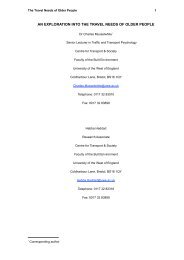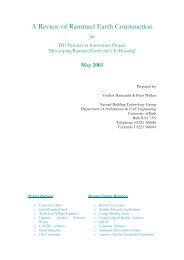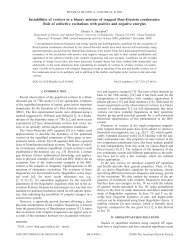Contents - Student subdomain for University of Bath
Contents - Student subdomain for University of Bath
Contents - Student subdomain for University of Bath
Create successful ePaper yourself
Turn your PDF publications into a flip-book with our unique Google optimized e-Paper software.
136 CHAPTER 4. MODULAR METHODS<br />
Algorithm 18 (Sparse g.c.d.)<br />
Input: A, B polynomials in R[y][x].<br />
Output: gcd(A, B)<br />
Figure 4.12: Algorithm 18: Sparse g.c.d.<br />
A c := cont x (A); A := A/A c ; # Using Algorithm 16, which<br />
B c := cont x (B); B := B/B c ; # calls this algorithm recursively<br />
g :=Algorithm 18(lc x (A), lc x (B));<br />
# one fewer variable<br />
G :=failed<br />
while G =failed # Expect only one iteration<br />
G :=Algorithm 19(g, gA, gB);<br />
return pp x (G)× Algorithm 18(A c , B c ); # one fewer variable<br />
Figure 4.13: Algorithm 19: Inner sparse g.c.d.<br />
Algorithm 19 (Inner sparse g.c.d.)<br />
Input: g leading coefficient; A, B polynomials in R[y][x].<br />
Output: gcd(A, B), but with leading coefficient g<br />
or failed if we don’t have the Zippel assumption<br />
d n := min(deg yn<br />
(A), deg yn<br />
(B)) # (over)estimate <strong>for</strong> deg yn<br />
(gcd(A, B))<br />
v 0 :=random(lc(A), lc(B)); #assumed good and satisfying Zippel <strong>for</strong> gcd(A, B);<br />
P 0 :=Algorithm 19(g| yn=v 0<br />
, A| yn=v 0<br />
, B| yn=v 0<br />
)<br />
if P 0 =failed<br />
return failed # Don’t try again<br />
d x := deg x (P 0 )<br />
i := 0<br />
while i < d<br />
v :=random(lc(A), lc(B)); #assumed good<br />
P i+1 :=Algorithm 20(Sk(P 0 ), g| yn=v, A| yn=v, B| yn=v)<br />
if deg x (P i+1 ) > d x # Either v j in Algorithm 20 or<br />
continue round the loop # | yn=v was not a good evaluation<br />
if deg x (P i+1 ) < d x<br />
return failed # | yn=v 0<br />
was not a good evaluation<br />
i := i + 1; v i := v # store v and the corresponding P<br />
C :=Algorithm 42({P i }, {v i }) # Reconstruct<br />
if C divides both A and B<br />
return C<br />
else return failed<br />
random(lc(A), lc(B)) chooses a value not annihilating both leading coefficients



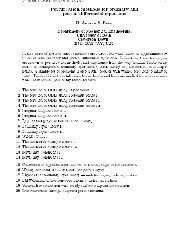
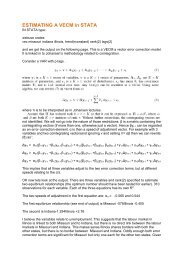

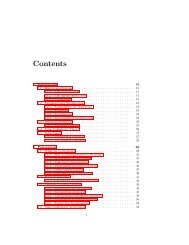
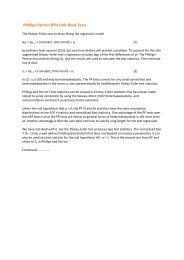
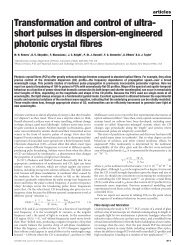
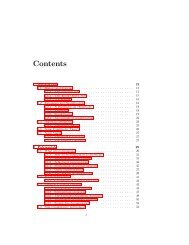

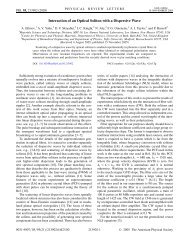
![[Luyben] Process Mod.. - Student subdomain for University of Bath](https://img.yumpu.com/26471077/1/171x260/luyben-process-mod-student-subdomain-for-university-of-bath.jpg?quality=85)

